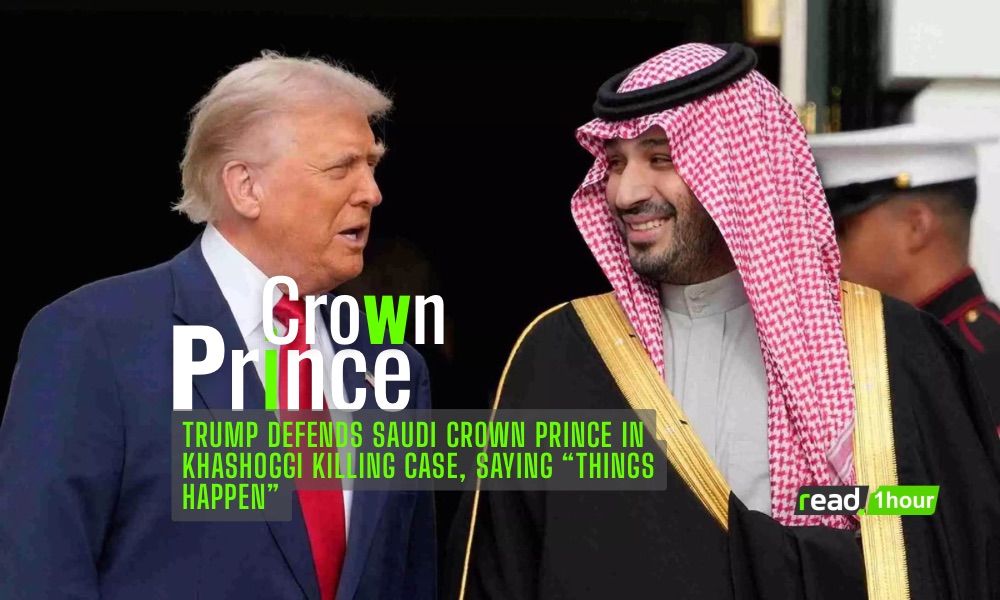Trump Defends Saudi Crown Prince In Khashoggi Killing Case, Saying “Things Happen”
read1hour delivers latest news, stock market updates, gadgets, mobile reviews, and trending stories daily.
Former U.S. President Donald Trump has once again reignited controversy by defending Saudi Crown Prince Mohammed bin Salman over the killing of journalist Jamal Khashoggi, stating that “things happen” during complex international situations. The remark has drawn sharp criticism from human rights groups, lawmakers, and global observers who say it minimizes one of the most widely condemned assassinations of the past decade.

Khashoggi, a Washington Post columnist and outspoken critic of Saudi leadership, was killed inside the Saudi consulate in Istanbul in 2018. Multiple intelligence agencies, including the CIA, concluded that the Crown Prince approved the operation. Despite this, Trump has repeatedly maintained close ties with Saudi Arabia and has publicly questioned the findings of U.S. intelligence.
In a recent interview, Trump said the incident should not define America’s relationship with the kingdom. “Saudi Arabia is a strategic partner. Things happen. The world is complicated,” he told reporters. Critics say such remarks undermine global efforts for transparency, justice, and accountability.
Human rights organizations responded immediately. Amnesty International called Trump’s comments “deeply irresponsible,” warning that dismissing such crimes encourages authoritarian leaders worldwide. “When powerful nations excuse these acts, it sends a frightening message to journalists and dissidents everywhere,” the group stated.
Lawmakers across party lines also expressed concern. Several members of Congress argued that the United States must uphold democratic values and condemn human rights abuses, regardless of political alliances. They warned that Trump’s continued defense of the Crown Prince damages America’s credibility on the world stage.
Foreign policy analysts say Trump’s stance reflects his long-standing approach: prioritizing geopolitical interests, security cooperation, and arms deals over human rights issues. During his presidency, Trump supported billions of dollars in weapons sales to Saudi Arabia, positioning the kingdom as a key ally in countering Iran.
Supporters of Trump, however, argue that his comments were pragmatic. They believe diplomacy requires flexibility and that maintaining strong ties with Saudi Arabia is essential for regional stability and global energy markets. Some also claim that focusing too heavily on past events risks straining an important strategic relationship.
The Khashoggi case remains a sensitive topic internationally. Despite global condemnation, Saudi Arabia has continued to deny high-level involvement, insisting that the killing was carried out by rogue operatives. However, investigative reports and intelligence assessments contradict this narrative.
Analysts warn that dismissive comments from influential leaders could shift the global conversation away from accountability. The killing of Khashoggi sparked international outrage, leading to calls for sanctions, diplomatic pressure, and reforms within the Saudi justice system. Many fear that such efforts may weaken if world leaders downplay the severity of the crime.
As Trump’s comments circulate widely, pressure is building on international organizations and governments to reaffirm their stance on human rights violations. For families of journalists and political dissidents, the fight for justice remains ongoing.
The debate highlights a broader question: should strategic partnerships outweigh accountability when human lives and fundamental freedoms are at stake? For many critics, the answer remains clear—justice must never be optional.
